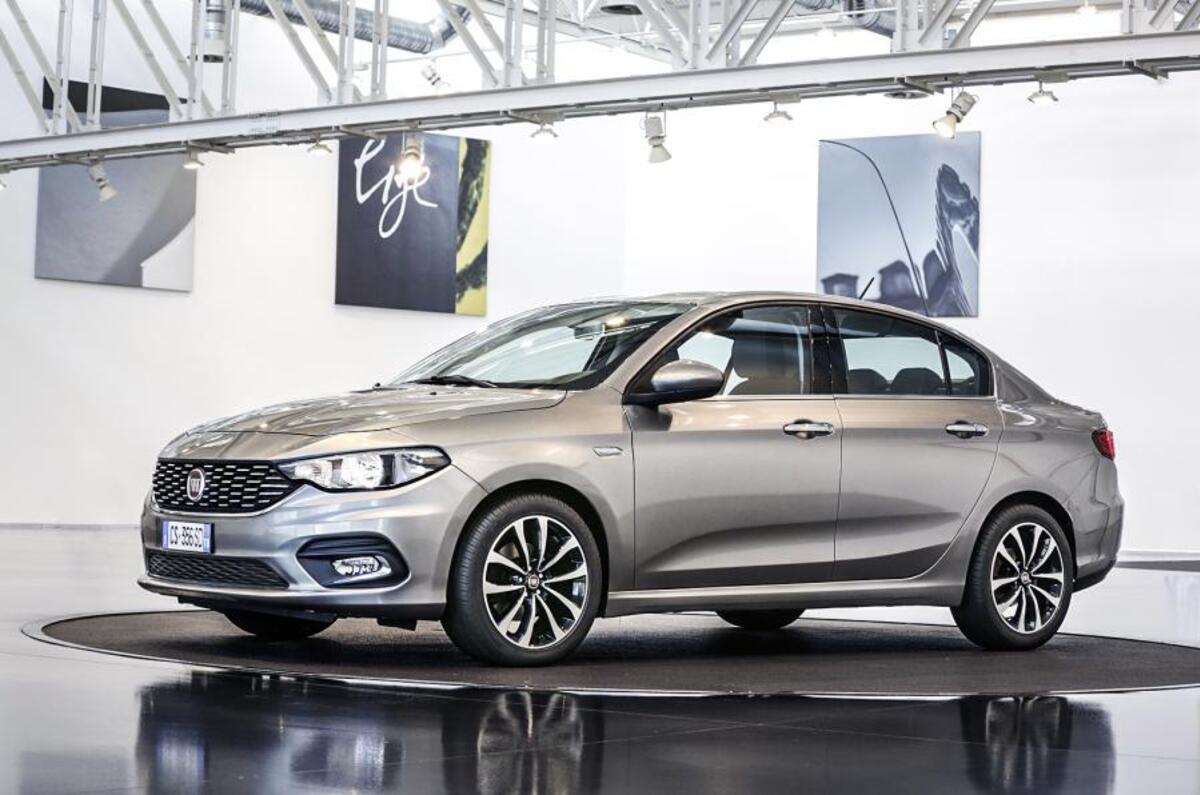Fiat’s new Fiat Tipo is one of the most intriguing new car projects for some years. And that’s because it is trying to overturn conventional marketing wisdom in the most competitive segment of Europe’s cut-throat mainstream car market.
Instead of selling ever-plusher cars in an attempt to improve the brand’s value and trying to convince punters to pay higher prices for mainstream models, the Tipo project is an attempt to build a decent car at a sensible price and turn a decent profit.
Since the arrival in 1999 of the Golf Mk4 (known for its interior and exterior build quality) and the first Ford Focus (known for its exceptional driving dynamics), cars in this sector have become ever more upmarket.
Hatchback and estate forms of the new Fiat Tipo are revealed at the 2016 Geneva Motorshow
The problem - which few in the industry ever talk about openly - is that what the average punter or fleet manager is willing to pay for a modern C-segment car is not enough to make a decent profit on such models.
Although car makers never break out the figures - not even to City analysts - most cars in this sector do well to break even from European sales.
Indeed, one analyst friend of mine said that he thought most of the slim profits (if any) for mainstream European car makers came from the £500 supplement for metallic paint. Don’t laugh. Ten years ago even £250 for the optional CD changer was an important part of the economics of selling a sub-£18,000 car.
The struggle to make mainstream cars pay is a three-fold problem. Firstly, anything built in the European Union is relatively expensive because the hourly cost of labour is - globally speaking - quite high. Secondly, if the car has also been engineered in Europe, the engineering costs are also elevated by western European wages. Thirdly, car makers are engaged in a battle to make their cars ever more refined and well-specified. And that costs money.
This is all very well, but if the average European buyer can’t - or won’t - pay list price for a mass-market car, then the business case just doesn’t add up.
When I suggested to the boss of a European manufacturer that his cars were just too well specified he said: "Not at all. My customers want even more." Well, yes, and who can blame them if they get all that car for hardly more than it cost to produce?
Citroën was probably the first brand to break ranks on this content race with the C4 Cactus. By using an existing platform and simplifying the car’s construction it has got the entry-level 75bhp model down to a base showroom price of £13,000, before any haggling.
And while Ford does offer a base, 85bhp Focus at £14,000 (surely the definitive loss-leader), the cheapest regular Focus kicks of at £17,000.




Join the debate
Add your comment
I'm all for unpretentious cars...
I'm all for unpretentious cars...
You dont half write some